As Hong Kong universities attract enthusiastic interest from Chinese mainland students, the city intensifies efforts to become a prime education hub linking the mainland and the world.
Hong Kong’s long-standing reputation as an education hub was on full display as university administrators and educators from the city were well-received by enthusiastic high school students and their parents during recent admission-briefing tours in Hangzhou, Zhejiang province.
The “With Universities Face-to-Face” session on Feb 15, organized by VDO English, the educational arm of China Daily Hong Kong, attracted over 500 attendees. The event was coorganized by the Hong Kong Professional Association of International Education, and supported by the Hong Kong Special Administrative Region’s Education Bureau and the Hong Kong Economic and Trade Office in Shanghai.
“I’m glad to see so many high-spirited students seeking more information and with so many questions that require answers,” said Sally Ching Shuk-lai, an academic registrar with Hong Kong Baptist University who attended the event.
She was joined by officials from the University of Hong Kong, Hong Kong Polytechnic University, the Education University of Hong Kong, Hong Kong Metropolitan University, and the Vocational Training Council, who offered on-site information regarding their schools’ admission criteria, aiming to attract the East China province’s young talent pool.
Delegates from the SAR’s higher education institutions also joined an education symposium on Feb 14, along with representatives from the provincial Department of Education and leading high schools, including Hangzhou No 2 High School, Hangzhou No 4 High School, Wycombe Abbey School (Hangzhou), and the Hangzhou Foreign Languages School.
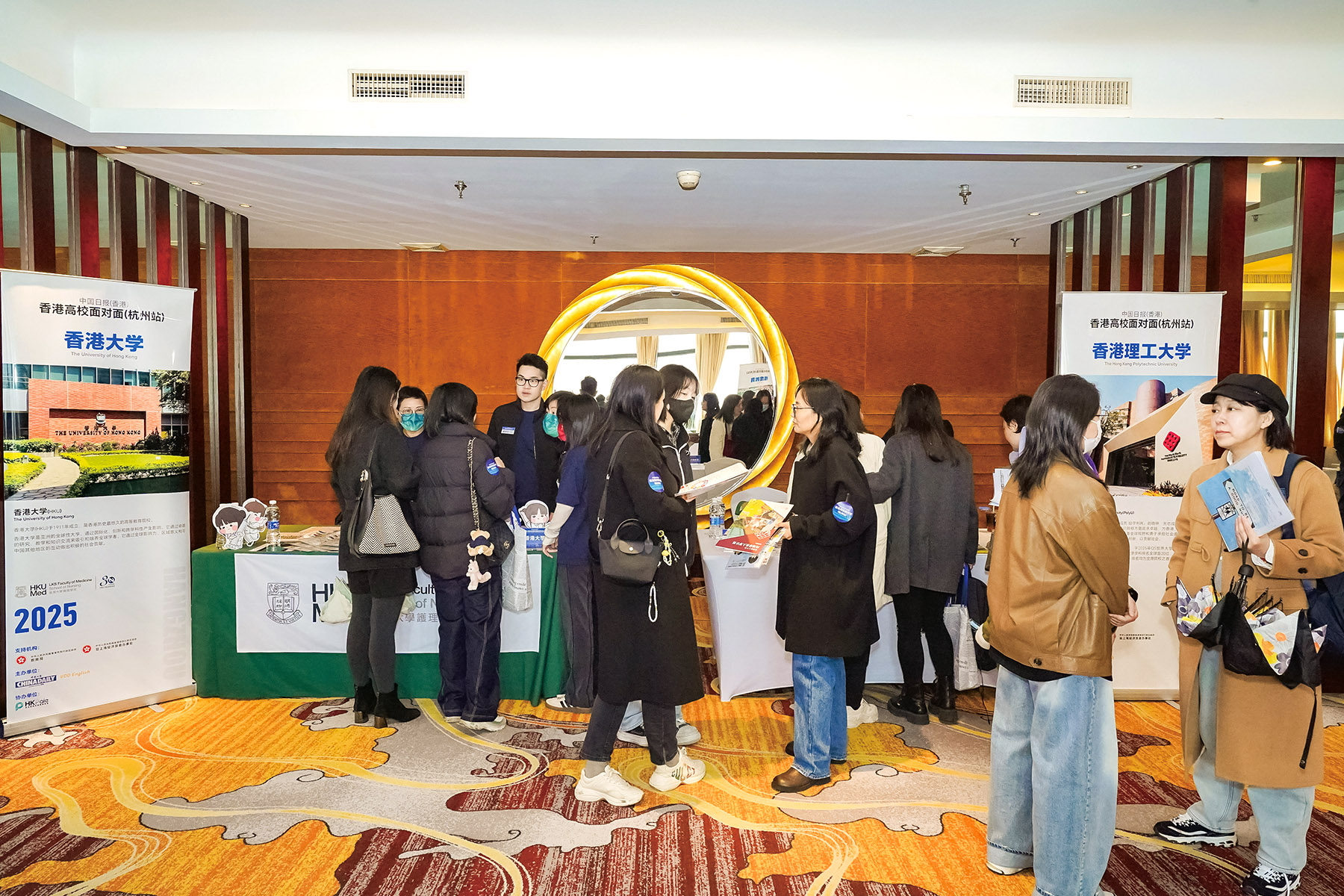
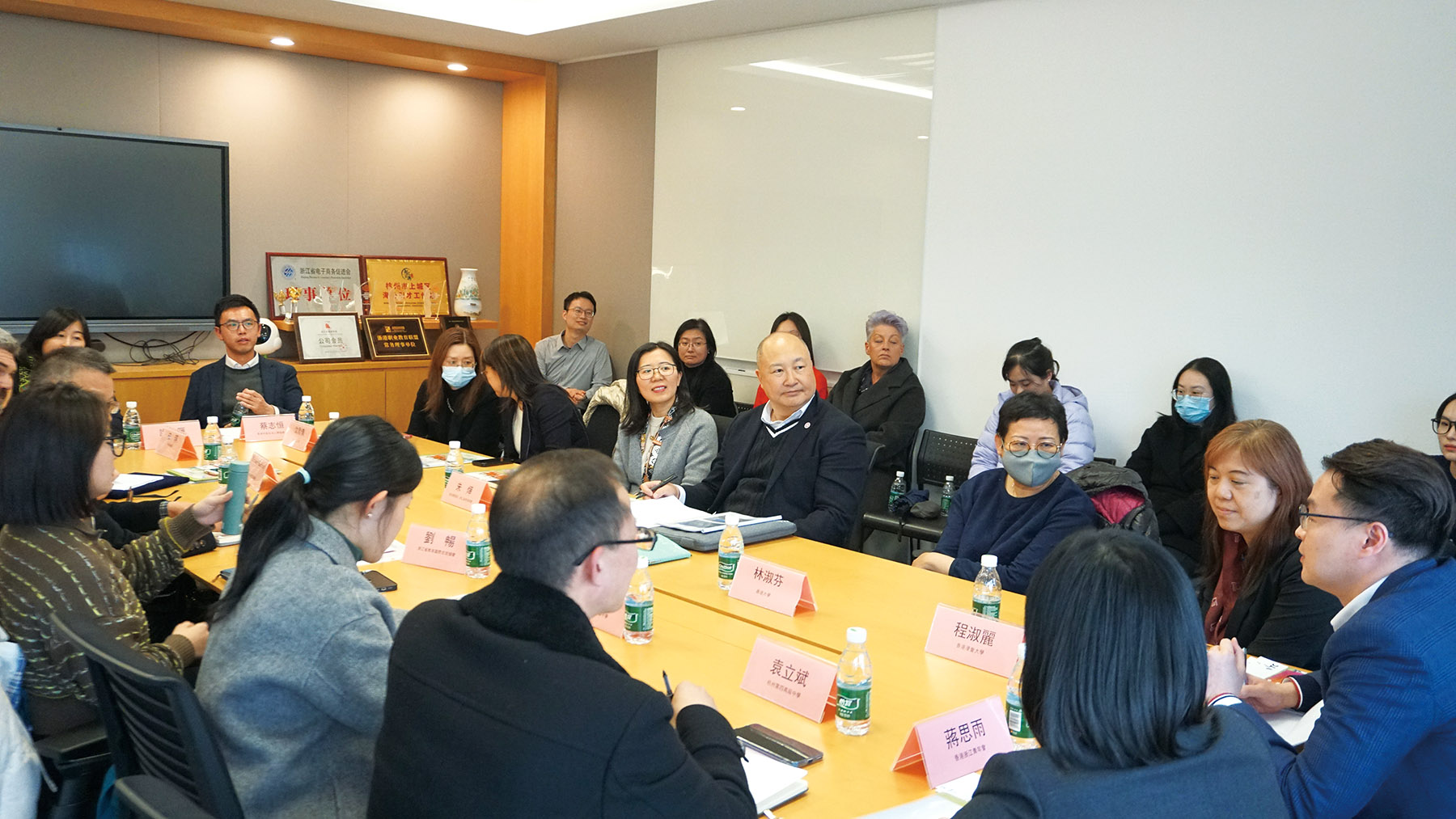
As Hong Kong doubles down on cementing its position as an international postsecondary education hub and creating its “Study in Hong Kong” brand, the education sector is placing great emphasis on the city’s serving as a potent intermediary between the mainland and the world, said Lau Ming-tak, director of the Zhejiang Liaison Unit of the HKSAR government, during the session.
With Hong Kong and Hangzhou’s kindred spirit in innovations and both being strongholds of quality educational resources, exchanges between their education sectors can undoubtedly help cultivate talent in the two cities, said Tan Yan, deputy general manager of China Daily Asia Pacific and director of VDO English.
Programs in trend
Bearing testimony to such an overwhelming response, Lau saw promise in encouraging more mainland students to consider opting for institutions of higher learning in Hong Kong — home to five of the world’s top 100 universities, with programs running the gamut to meet students’ diverse expectations, from those with a long well-earned reputation to those regarded as more state of the art.
Six hour-long sharing sessions in a row showcased an array of options up for grabs.
Ho Mu-hsing, an assistant professor at the School of Nursing, LKS Faculty of Medicine, the University of Hong Kong, who began the briefing series, introduced the School’s newly launched Bachelor of Science in Nursing, a four-year, full-time program targeting students from the Chinese mainland. It admits students who have passed the National College Entrance Examination, also known as gaokao, or those with international qualifications.
ALSO READ: Leaders aim to turn HK into higher education hub
Jennifer Ho Ching, assistant director of global affairs at EdUHK, presented three newly launched undergraduate programs at her school that also received heaps of interest — namely, the Bachelor of Science in Speech Pathology and Rehabilitation, a field of study that previously catered only to undergraduates and PhD students; the Bachelor of Arts in Personal Finance; and the Bachelor in Digital Chinese Culture and Communication.
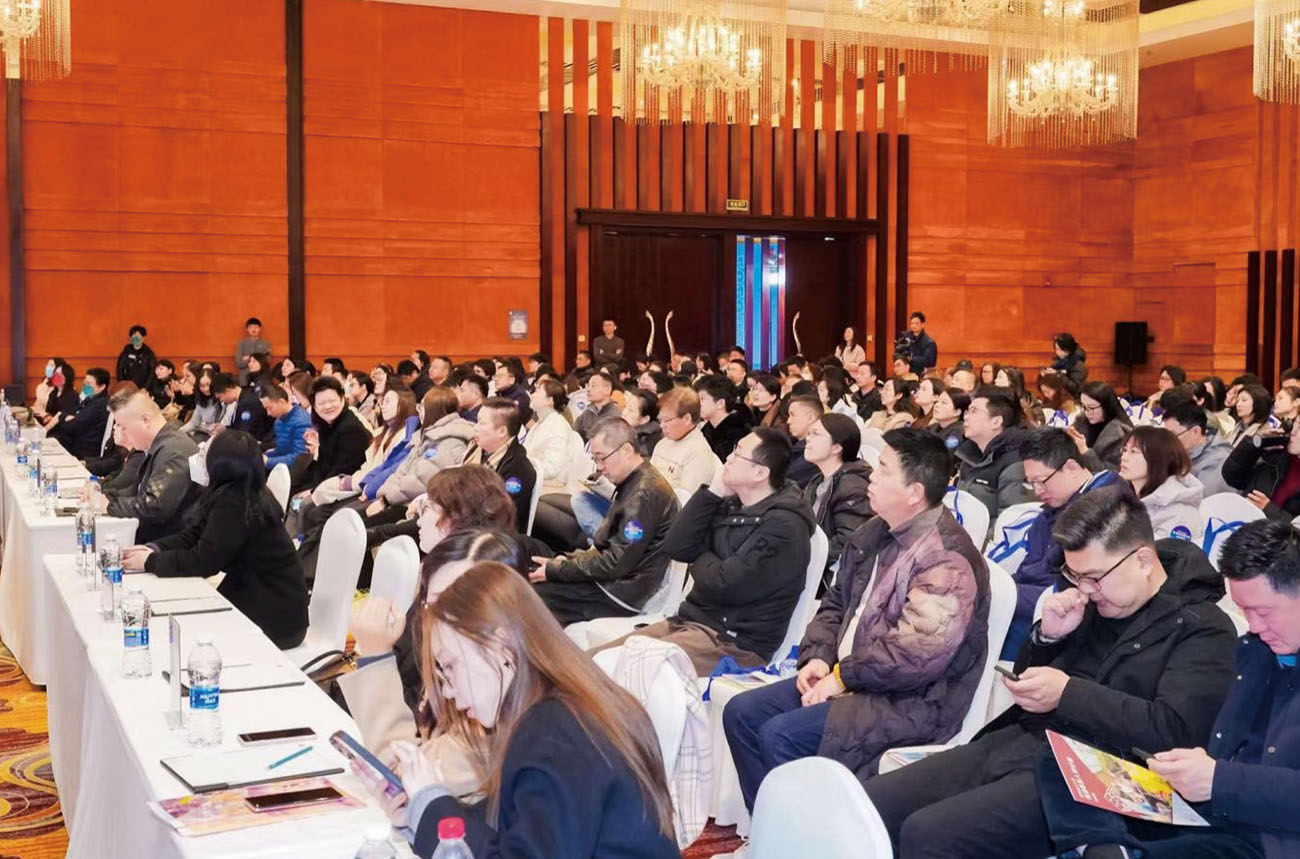
Another significant program renovation at EdUHK highlighted is the proliferation of double-major offerings, mostly intersecting with digital technology. Upskilling is ever more required, given that generative artificial intelligence has been gradually taking hold in many sectors, including education, she said.
Wu Biying, one of the associate leaders of the Master of Arts in New Media and Social Media, said the program exemplifies such interdisciplinary integration efforts, with AI and pedagogy studies both serving as the main threads of its curriculum.
“Many of our new initiatives come hot on the heels of the latest development trends,” said Jennifer Ho, a view shared by all the spokespersons.
HKBU hustled to table its resolve to be the avant-garde spearheading the cultivation of multidisciplinary talents. Sally Ching presented as a headline initiative the university’s curriculum reforms set for the 2025-26 academic year, marked by a transdisciplinary and flexible curriculum structure.
This includes the launch of the Bachelor of Arts and Science in Digital Future and Humanities and multiple Transdisciplinary Second Majors on top of students’ first choices, covering the cultural and creative industry, digital entertainment, creative media, green technology, applied AI, and entrepreneurship.
A mother, who deemed her 17-year-old son “less forward-looking”, said she felt particularly enthusiastic at the myriad offers. “We’ve heard Hong Kong’s now beefing up its innovation and technology industry,” she said. “And we’ve brought him here today to let him learn more about leading trends, such as AI.”
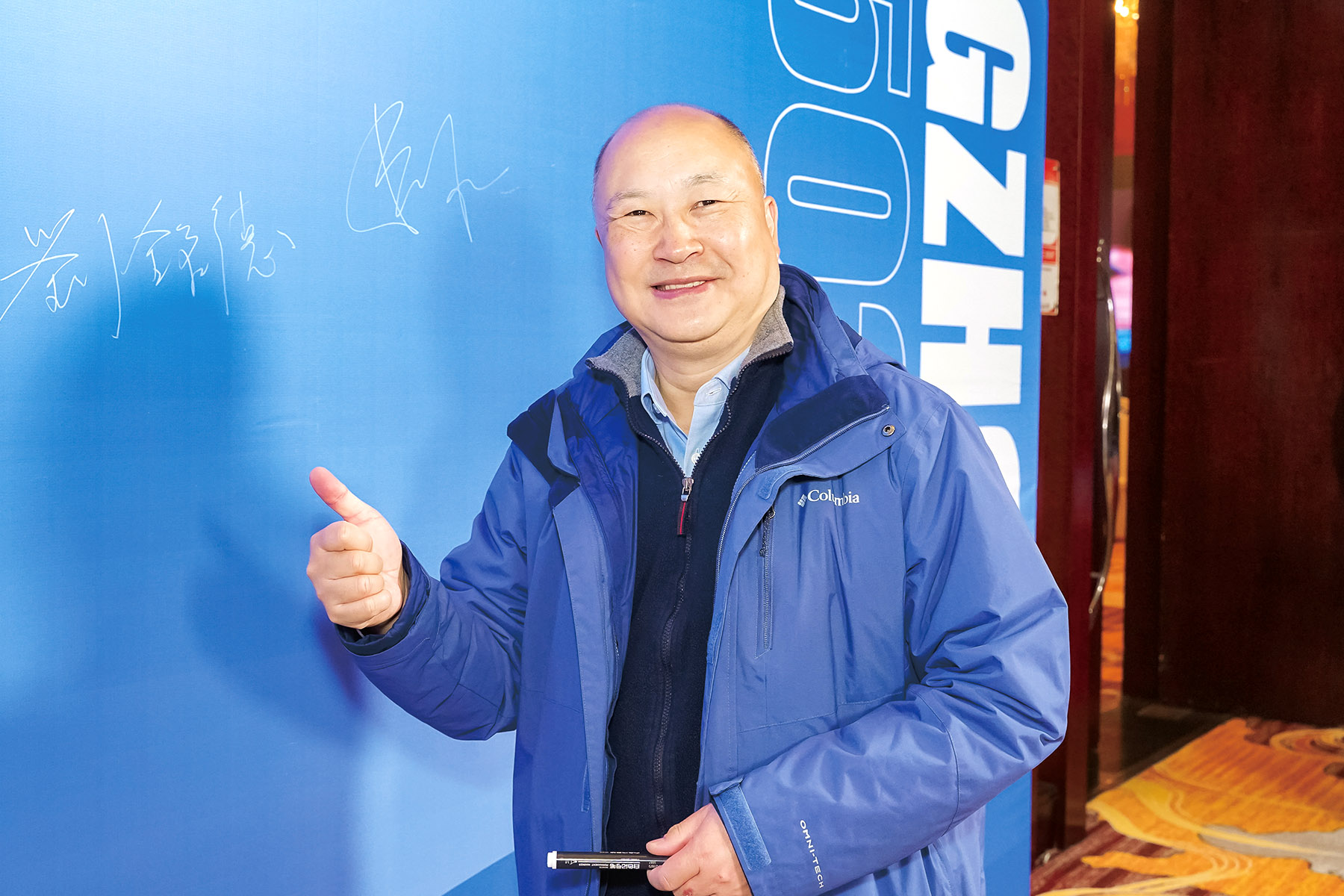
Broad career prospects
Future-oriented innovation aside, another key allure of Hong Kong universities being recognized most concerns the much-coveted career prospects locally and beyond.
The SAR’s superconnector role should add to its appeal among young adults who are on the threshold of seeking employment upon graduation. While mainland talents are welcome to stay and continue tapping the opportunities the city has to offer, graduates of Hong Kong’s top institutions are believed to be among the vital mainstays back on the mainland to help propel their hometowns’ growth, Lau said.
EdUHK’s Jennifer Ho said that Hong Kong universities funded by the city’s University Grants Committee began admitting mainland applicants based on their gaokao results in 2005.
“The workforce constituted by mainland graduates has long been active in various fields in Hong Kong,” she said. “The moment they step onto Hong Kong soil, they’re part of us, all expected to be passably assimilated, take on some knacks for local operations but, often to their advantage, retain innate advantages rooted in their mainland background.”
ALSO READ: HK, Kazakh universities launch academy of education in Almaty
In the education sector, for example, such graduate employees will frequently be placed on top of the person-in-charge list when it comes to cross-regional projects involving mainland stakeholders, Jennifer Ho said.
She added that the respective language strengths of mainland students and their Hong Kong peers in Putonghua and English should be celebrated, as they forge a mutually complementary synergy that enhances Hong Kong’s education ecosystem, featuring a diverse range of instruction mediums, including Cantonese, Putonghua and English, as well as a variety of their combinations.
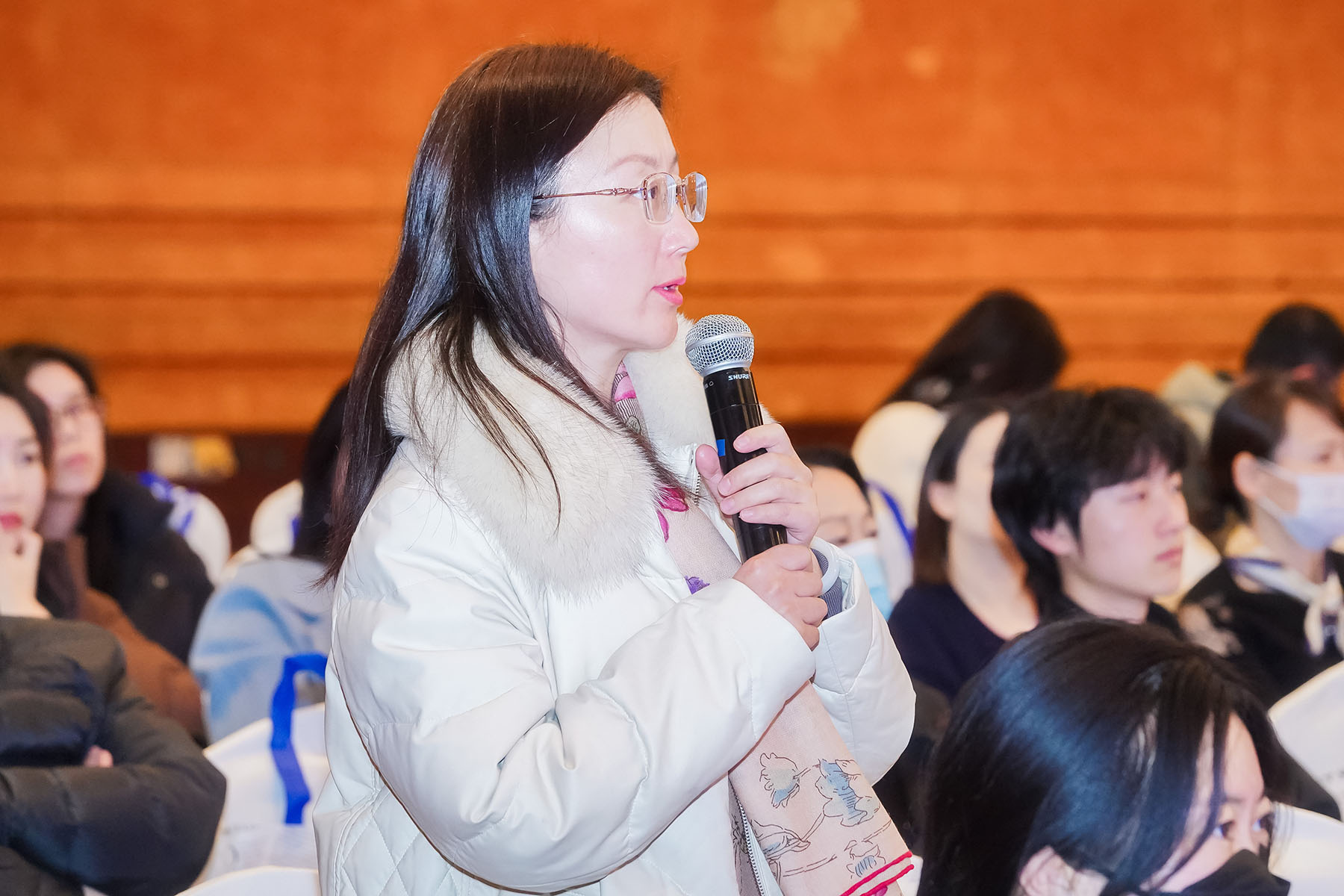
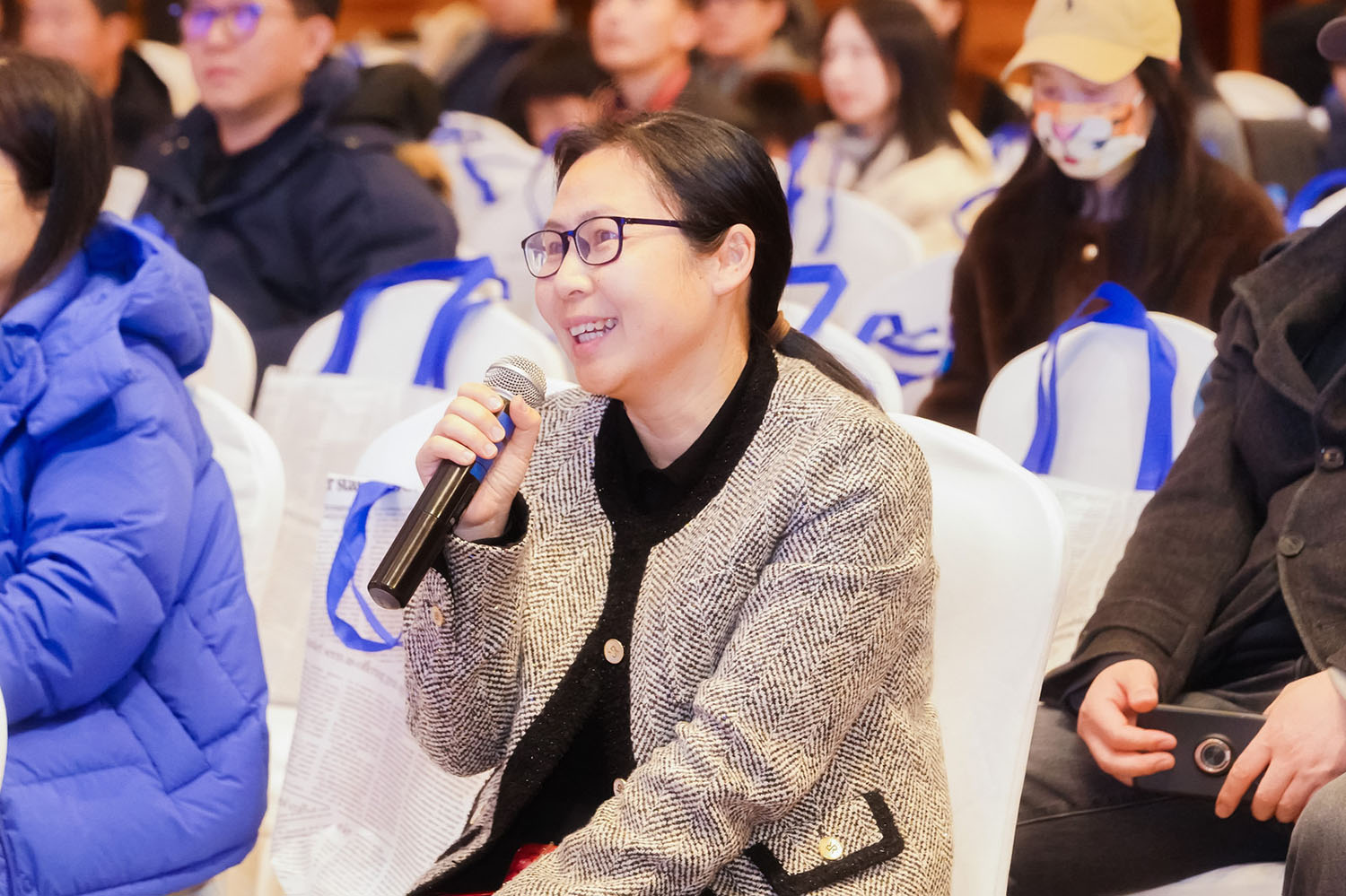
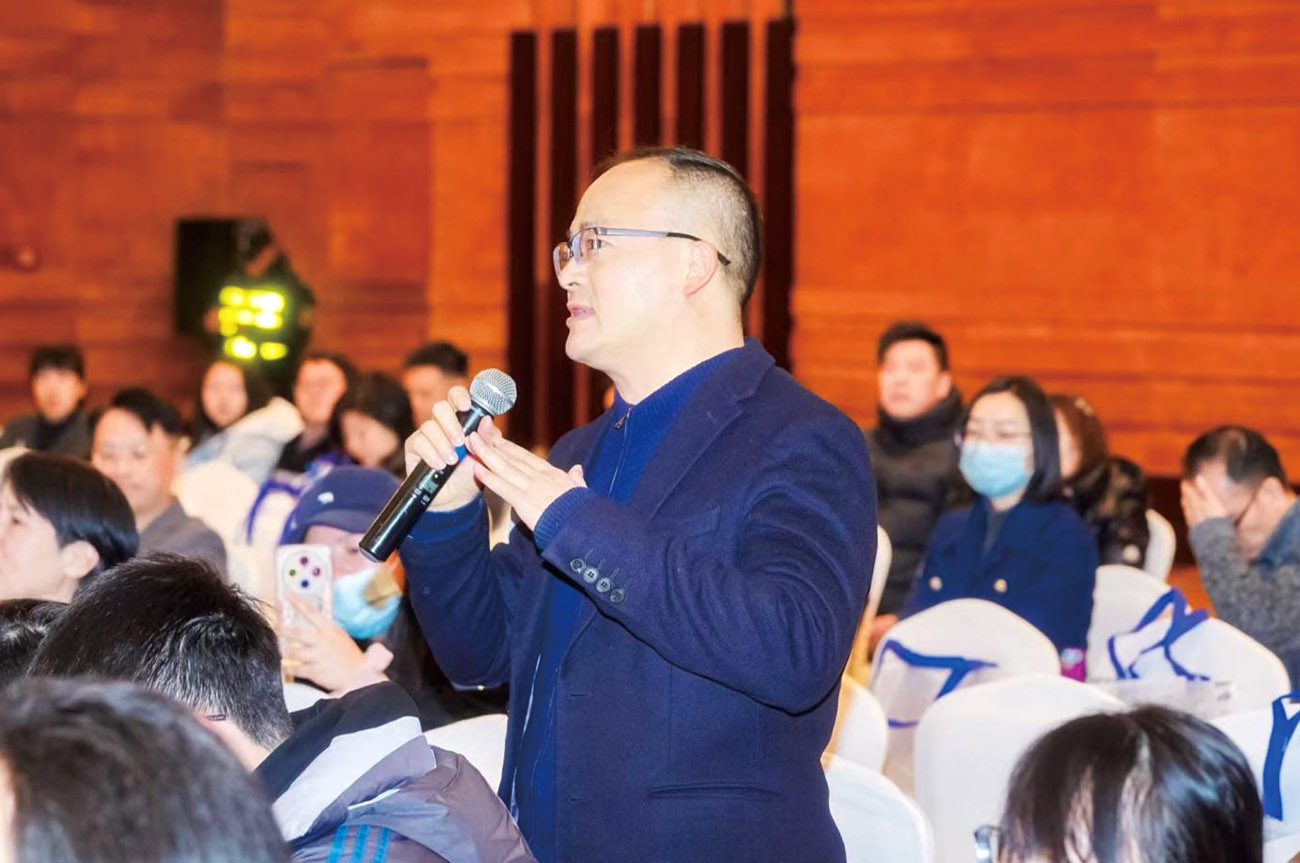
Many parents at the briefing sessions said that they also expected their children’s Hong Kong study will help them seize the developing opportunities within the burgeoning Guangdong-Hong Kong-Macao Greater Bay Area — an 11-city economic megalopolis in southern China that boasts a population of over 86 million and a gross domestic product of over 14 trillion yuan ($1.92 trillion).
To follow their mainland counterparts, thereby broadening graduates’ career paths, students who have satisfactorily completed this HKU’s nursing program can apply for the National Nursing Licensure Examination administered by the Ministry of Health for registered nursing qualifications, said HKU Med School of Nursing’s Ho Mu-hsing.
At sessions held by officials of Hong Kong Metropolitan University — the SAR’s first University of Applied Sciences, approved in 2024 — and the Vocational Training Council, a statutory body that has been leading the city’s vocational and professional education and training for over 40 years, hands were hastily raised, signaling the attendees’ collective determination to seek robust employability.
Baked in a core concept of the applied sciences, applied degree programs at HKMU bear all the hallmarks of quality professional education, offered in response to market trends and industry needs. They are designed with a dual emphasis on theory and practice, and backed by industry partners to incorporate substantial internship opportunities, said Richard Yang Xi, head of mainland affairs at HKMU’s Li Ka Shing School of Professional and Continuing Education.
While relatively new in Hong Kong, applied sciences courses, geared to lifting vocational and professional education and training to a university degree level, have been gathering steam on the mainland in the footsteps of Eastern European countries and Japan.
ALSO READ: HK summit propels global collaboration in higher education
Personal growth
An introduction on the Vocational Professionals Admission Scheme (VPAS) was delivered by Brian Chan, deputy general manager of the VTC’s mainland operation center. It is a two-year pilot initiative that was promulgated by the Hong Kong SAR government in 2023 to address the labor shortage of some skilled trades.
Effective in the 2024-25 and 2025-26 academic years, nonlocal students of 34 VPAS-eligible VTC Higher Diploma programs can apply upon graduation to remain in Hong Kong to seek employment within the specified time frame under the VPAS.
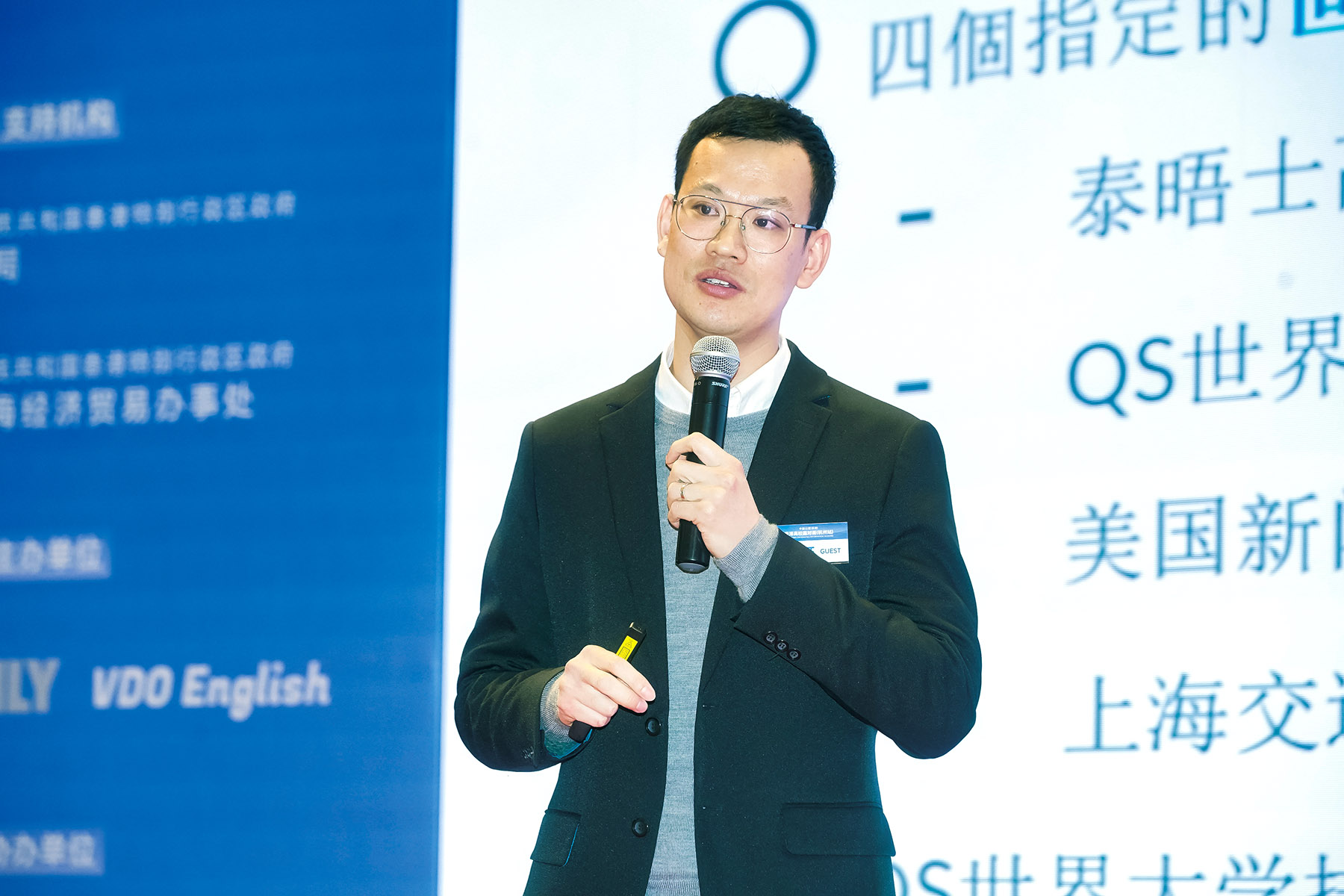
Geoffrey Chen Jiajun, an immigration officer at the HKSAR’s Economic and Trade Office in Shanghai, said there will be more career pathways with the anticipated growing inflow of people into Hong Kong from the mainland and beyond. He briefed participants at briefing sessions on the SAR’s various talent admission programs.
There was a common sense of resolve and confidence among Hong Kong officials in getting more nonlocal students to apply for the programs, pledging that a further increase in the admission quotas is likely.
Propelled by the doubling of intake quotas for nonlocal students as announced by the HKSAR government in 2023 — now capped at 40 percent of all available vacancies for taught programs, up from the previous 20 percent — Hong Kong’s eight UGC-funded universities have been ramping up their enrollment of nonlocal students, including EdUHK.
According to Jennifer Ho, EdUHK’s mainland undergraduate intake for the 2024-25 academic year had exceeded 200 — a roughly twofold increase over the years before the policy revamp. It’s a pace that could be maintained for the coming academic year, she said, hinting at an estimated 400 to 500 admissions.
Yet, with growing enthusiasm comes a caveat. Nowadays, information abounds, and parents are sometimes in a frantic scramble to get their hands on it. But in trawling more information, gaining firsthand material and more pointed advice to buoy up comprehensive contemplation is recommended, said Lau of the SAR government’s Zhejiang Liaison Unit.
“The most confident move is underpinned by sufficient knowledge and understanding, and that necessitates face-to-face communication with insiders,” he said.
READ MORE: Xia: HK has unique advantages in higher education
Sally Ching of HKBU agreed, saying it’s even better to include children in searching for information — a process that’s usually associated with parents.
“The more you understand the characteristics of each school, their programs and the application procedures, the higher your chances of success,” advised EdUHK’s Jennifer Ho. “This is where direct inquiries and exchanges with university staff can gain the upper hand.”


